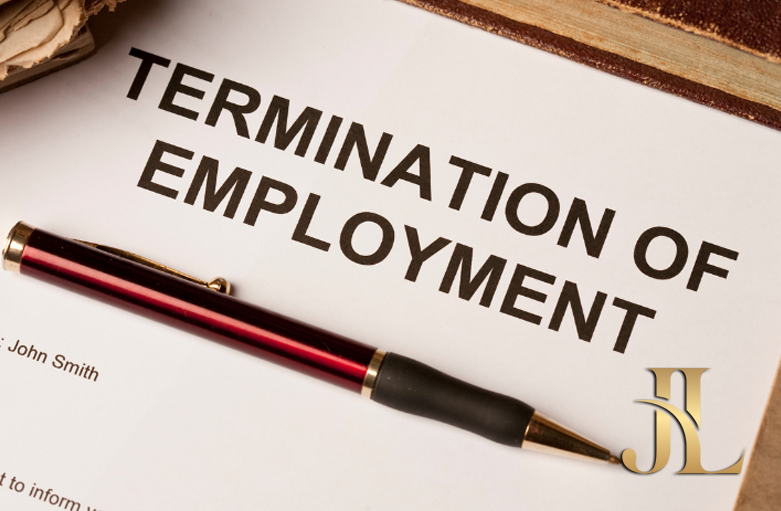BLOG POSTS
Termination and Severance Laws in Las Vegas: Navigating Employment Transitions
In today’s dynamic employment landscape, understanding termination and severance laws is crucial for employers and employees. Las Vegas, known for its vibrant culture and bustling economy, has specific regulations to govern these essential aspects of employment. Whether you’re an employer seeking to terminate an employee or an individual facing the end of their employment journey, it’s vital to be well-informed about the legal framework surrounding terminations and severance in Las Vegas.
Understanding Termination and Severance
Termination and severance are pivotal aspects of the employment journey. Termination refers to the end of the employment relationship, while severance entails the compensation and benefits an employee might receive upon termination. Both employers and employees need to grasp these concepts fully.
Exploring the Difference Between Termination and Layoff
Termination can occur for various reasons, such as poor performance, violations of company policies, or even downsizing. Layoffs, on the other hand, generally involve the elimination of positions due to factors like economic challenges or restructuring.
Importance of Proper Documentation
Documenting the reasons for termination is crucial to avoid legal complications. Proper documentation provides evidence of the grounds for termination, protecting both parties involved.

Termination Laws in Las Vegas
At-Will Employment: What Does It Mean?
Like most of Nevada, Las Vegas operates under the at-will employment principle. This means that the employer or the employee can terminate the employment relationship at any time, for any reason, as long as it’s not discriminatory or retaliatory.
Protected Classes: Navigating Anti-Discrimination Laws
Employers must be cautious not to terminate employees based on protected characteristics such as race, gender, religion, or disability. Violating these anti-discrimination laws can result in legal action.
Wrongful Termination Claims and Remedies
Employees who believe they were terminated unlawfully can file wrongful termination claims. In extreme cases, remedies may include reinstatement, compensation for lost wages, and even punitive damages.
Severance Packages: What to Expect
Components of a Typical Severance Package
Severance packages often include compensation, continuation of health benefits, and career transition assistance. The package terms can vary based on factors such as length of employment and position.
Negotiating a Fair Severance Agreement
Employees have the right to negotiate the terms of a severance package before accepting it. Seeking legal counsel can help ensure that the agreement is fair and favorable.
CONTACT JASON LANDESS & ASSOCIATES BY EMAIL CLICK HERECompliance with WARN Act
The Worker Adjustment and Retraining Notification Act
The WARN Act requires certain employers to provide advance notice of plant closings or mass layoffs. This law gives employees ample time to secure new employment or training.
When the WARN Act Applies
The WARN Act applies to employers with a certain number of employees and is triggered by specific events, such as large-scale layoffs or plant closures.
Seeking Legal Counsel
The Role of Employment Attorneys
Navigating termination and severance laws can be complex. Employment attorneys specialize in these matters, offering expert guidance to employers and employees.
How They Can Help You
Employment attorneys can review employment contracts, assess the validity of termination, negotiate severance terms, and represent clients in legal proceedings if necessary.
Unemployment Benefits
Eligibility Criteria for Unemployment Benefits
Employees terminated through no fault may be eligible for unemployment benefits. Eligibility criteria include having earned sufficient wages and meeting specific work requirements.
The Application Process
Applying for unemployment benefits involves submitting an application and providing the necessary documentation to the state’s unemployment agency.

Handling Disputes and Litigation
Mediation and Arbitration as Alternatives
Before litigation, parties can consider mediation or arbitration to resolve disputes. These methods can save time and money compared to a court trial.
Filing a Lawsuit for Wrongful Termination
If other methods fail, filing a lawsuit might be necessary to seek justice for wrongful termination. Legal action can lead to compensation and closure for aggrieved employees.
Termination and Social Media
Navigating the Fine Line
Employees should be cautious about what they post on social media, especially concerning their termination. Inflammatory posts can negatively impact legal proceedings.
Potential Repercussions
Posting confidential company information or making defamatory statements could result in legal consequences. It’s wise to exercise discretion when discussing employment matters online.
Importance of Exit Interviews
Gathering Valuable Feedback
Exit interviews provide employers with insights into the reasons for employee departures. Constructive feedback can lead to positive changes within the organization.
Addressing Potential Issues
Exit interviews also allow departing employees to voice concerns or issues they might have encountered during their tenure.
CONTACT JASON LANDESS & ASSOCIATES BY EMAIL CLICK HEREEmployer’s Responsibilities
Providing Final Paychecks
Employers are obligated to provide employees with their final paychecks promptly upon termination. This includes payment for any accrued but unused vacation days.
Returning Company Property
Upon termination, employees must typically return company property, such as laptops or access badges. This helps protect sensitive company information.
Creating a Positive Transition
Providing References and Recommendations
Employers can play a role in an employee’s successful transition by providing references and recommendations for future employment opportunities.
Maintaining Professional Relationships
Maintaining positive relationships with former employers and colleagues can lead to networking opportunities and a smoother career transition.
Understanding Non-Compete Agreements
Enforce-ability in Las Vegas
Non-compete agreements, which restrict employees from working for competitors after leaving a company, must be reasonable in scope and duration to be enforceable in Las Vegas.
Implications for Future Employment
Employees bound by non-compete agreements should consider the potential impact on their future career choices.

The Role of Trade Secrets
Protecting Sensitive Information
Employers must protect trade secrets and confidential information, even after an employee’s termination.
Legal Remedies for Breach
If a former employee breaches a non-disclosure agreement by disclosing trade secrets, legal remedies may be pursued to prevent further harm.
FAQs
- Can an employer terminate an employee without any reason in Las Vegas?
Yes, Las Vegas follows the principle of at-will employment, allowing employers to terminate employees without specific reasons as long as it’s not discriminatory or retaliatory. - How long do I have to file a wrongful termination claim?
The statute of limitations for filing a wrongful termination claim in Las Vegas can vary based on the nature of the claim. Consulting an employment attorney is recommended for accurate guidance. - Can I negotiate the terms of my severance package?
Absolutely. Employees have the right to negotiate the terms of a severance package before accepting it. Seeking legal counsel can help ensure a fair agreement. - What is the role of mediation in resolving employment disputes?
Mediation is a voluntary process where a neutral third party helps parties in dispute reach a mutually acceptable resolution. It can be a less adversarial alternative to litigation. - Are non-compete agreements enforceable in Las Vegas?
Yes, non-compete agreements can be enforceable in Las Vegas if they are reasonable in scope and duration. Courts will assess whether the restrictions are fair to both parties involved.
Conclusion
Termination and severance laws in Las Vegas are crucial to the employment landscape. Both employers and employees should be well-versed in these regulations to ensure fair and lawful employment transitions. By understanding the intricacies of termination, severance packages, and the available legal recourse, individuals can confidently navigate this process and make informed decisions that safeguard their rights and future.
Navigating termination and severance laws requires expert legal guidance. Jason Landess & Associates specializes in employment law and is here to help you understand your rights and options. Whether you’re an employer seeking to terminate an employee or an individual facing termination, contact us today for reliable assistance.
CONTACT JASON LANDESS & ASSOCIATES BY EMAIL CLICK HERE
